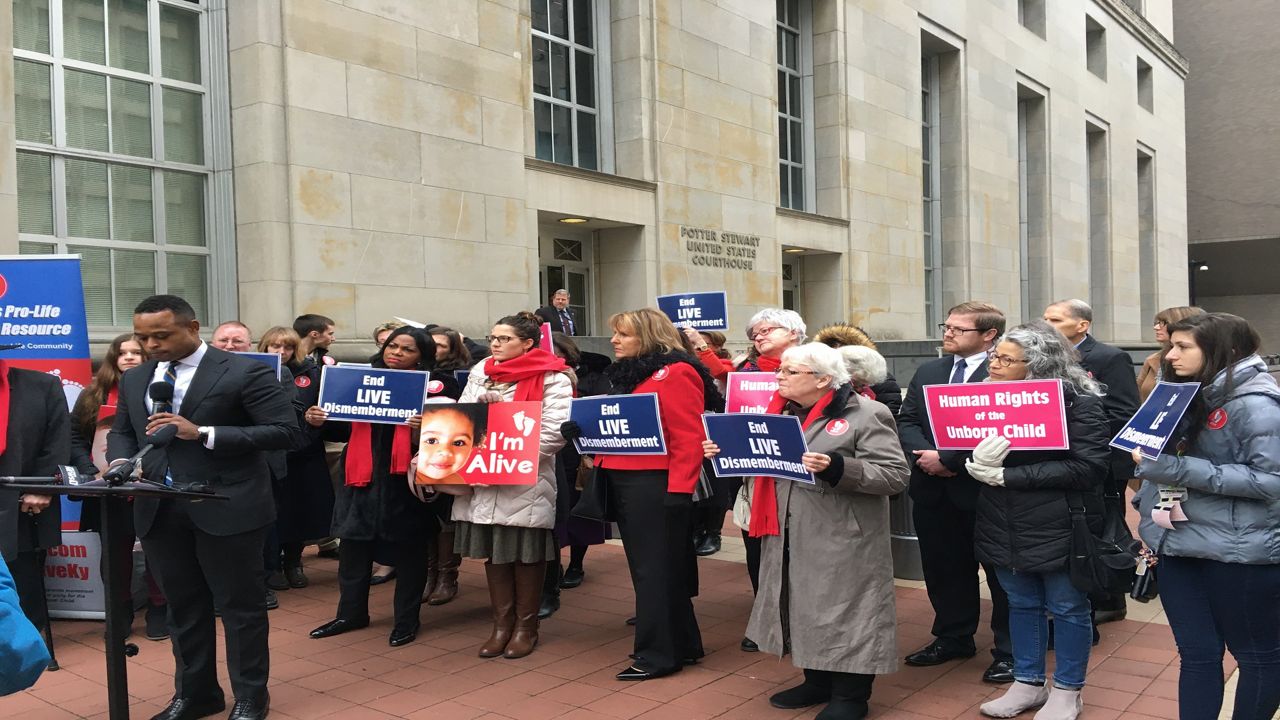CINCINNATI, Oh. — The fate of an abortion law in Kentucky is now in the hands of a federal appeals court.
The Sixth Circuit Court of Appeals heard arguments from the Attorney General’s Office and the ACLU of Kentucky on the constitutionality of HB 454 (2018) that made restrictions on dilation and evacuation — commonly referred to as D&E abortions.
A lower court struck down Kentucky’s law which would require women to get a fetal demise before having the D&E procedure done saying requiring a woman to have an additional procedure impedes her rights.
"The Commonwealth's legitimate interests do not allow the imposition of an additional medical procedure — an invasive and risky procedure without medical necessity or benefit to the woman — prior to the standard D&E abortion." U.S. District Judge Joseph McKinley's opinion read. "Here, Kentucky’s legitimate interests must give way to the woman’s right."
The Attorney General’s Office argued today they are not banning the procedure they just want to make sure fetuses’ are not dying from hemorrhages as a result of the D&E.
“It simply requires abortion providers ensure that the unborn child dies before beginning the dismemberment procedure,” said Attorney General Daniel Cameron said after arguments. “This is without question a more humane way to perform the procedure our society would never condone live dismemberment of violent criminals or even animals so now why do we allow such a painful practice to be carried out while a child is still in the womb?”
The Attorney General’s office further argued this would not completely eliminate second-trimester abortions since the law does not outright ban D&E instead it just requires the fetal demise first. EMW Women’s Surgical Center, the only abortion clinic in Kentucky however, does not offer the procedure and the ACLU says doctors there will not perform a fetal demise because the risks do not justify the benefits. During arguments, Judge Eric Clay questioned why others were using this procedure if it were unsafe.
“We certainly acknowledge certain doctors around the country do perform digoxin injections although under very different circumstances than what Kentucky is referring to here,” argued Andrew Beck, Attorney for ACLU of Kentucky. “And that doesn’t take away from the district courts well-supported findings that the procedures carry significant health risks.”
The ACLU urged the appellate court to uphold the ruling against the law saying if they didn’t abortion access in Kentucky is at risk.
“The impact would be devastating for abortion access for women in Kentucky,” said Beck. “It would eliminate an abortion procedure that women need and that doctors provide that is safe and it would put women’s health in jeopardy.”
Matt Kuhn, Deputy Solicitor General for the Attorney General’s Office argued doctors at EMW can be trained to use the injection.
“The Supreme Court has said that doctors don’t have unfettered discretion in the course of their medical practice and that Kentucky can require doctors to learn new procedures,” he said. “The point I made to the court this morning if doctors in Ohio are doing it why can’t doctors in Kentucky do it?”
Both sides left the arguments feeling confident.
“I think the argument went well today and I thought the judges asked good questions and it showed I think at the end of the day that politicians shouldn’t be interfering with the practice of medicine,” said Beck.
“Although it’s impossible after oral arguments to predict how the court is going to rule we made a forceful defense of the law today,” Kuhn said. “The court heard for example how this law merely requires doctors to ensure that unborn children die before they are dismembered.”
It could be months before the panel makes a ruling.



